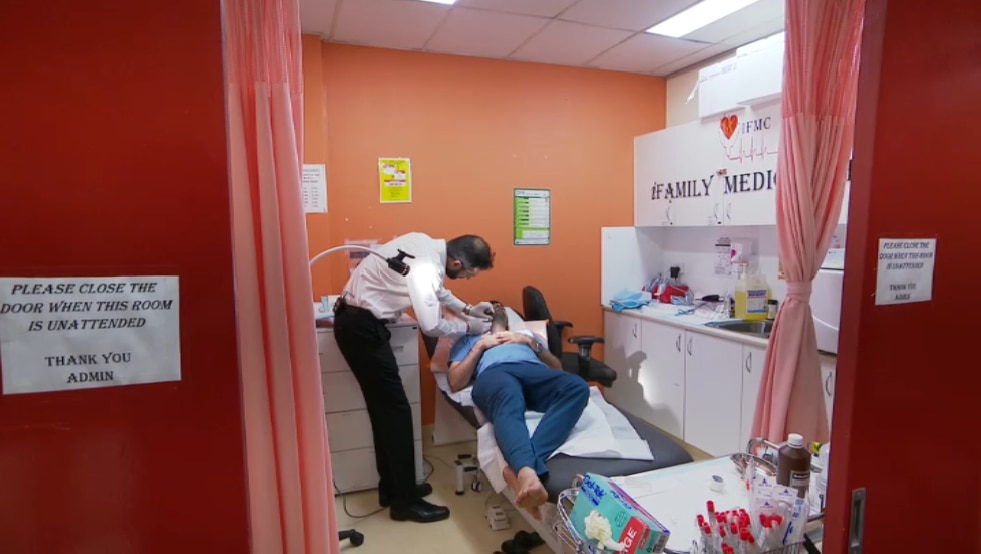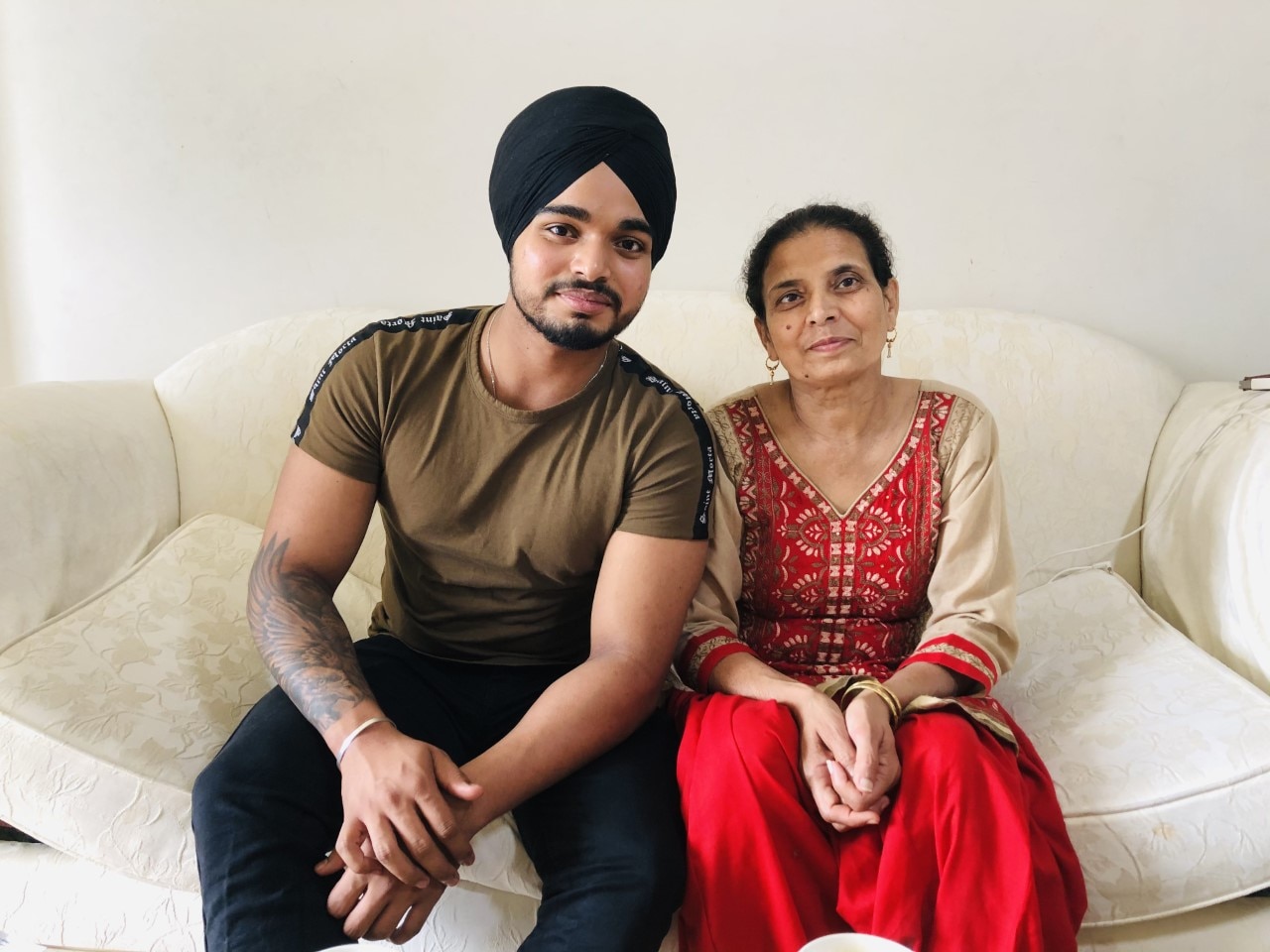Patients line the waiting room of the iFamily Medical Centre in the western Sydney suburb of Rooty Hill, sitting with COVID-safe spaces between them.
The coronavirus pandemic has brought an influx of new faces to the clinic. Many have been making the trip to Rooty Hill specifically to come here.
They’ve heard a doctor is offering free health care to those who are struggling financially, and with the pandemic having prompted mass unemployment, many of the new patients have found themselves in exactly that situation.
“[When the pandemic hit Australia] it was crazy – a big rush, with a lot of people coming,” practice receptionist Aisha Bah said.
“A lot of people would come in from word of mouth, they wouldn’t even know how to pronounce the doctor’s name.
“They’d say, ‘there’s a doctor here who might help me’ – and I’d say, ‘it’s Dr Zia’”.
As such, Dr Syed Zia Hussain has become a man in demand, particularly among temporary visa holders.
Many temporary visa holders in Australia are not eligible for a Medicare card, which helps with the costs of seeing a doctor, medicines and mental health care. They have to foot bills outright, with a 30-minute GP appointment often costing at least $70.
As Australia’s international border closed last year, the federal government told temporary visa holders who couldn’t support themselves to “go home”. They were not granted access to much welfare support and many found themselves in precarious positions.
“With COVID-19 there’s been a huge increase in the number of patients asking for free help,” Dr Zia told SBS News.
“Any patient who would come to me and say, ‘doctor, I can’t afford this fee, I’m on a temporary visa, I’m struggling, I’m a student and I don’t have insurance’ … I never charge them.”
Beginnings in Pakistan
For Dr Zia, not charging patients is something he’s done before.
He grew up in Pakistan, where endemic disease is common, and contracted tuberculosis himself at age 16.
Inequities in the country’s healthcare system became a concern to him, and as a young doctor he would see around half his patients for free in a clinic near his home.
“I’m talking about poverty that’s below the line, people not having the money to eat,” Dr Zia said.
“If they didn’t have the money, I never used to charge them, and in fact, if they needed the money, I used to pay for their medicine as well. If you don’t help them, they will suffer a lot.”
Dr Zia was also involved in another cost-sharing initiative during a fellowship at an Islamabad government hospital.
“It was free of cost to everyone but … if there was a special test required or a special medicine, the patient had to purchase that,” he said.
“So, we created a fund within our own ward, and it was a highly effective system – any patient who couldn’t afford anything, we used to take money out of that fund and donate it to that patient.”
‘I wanted to make my father proud’
Growing up in a military family, Dr Zia spent his childhood moving between different parts of Pakistan.
It was his father, who became a colonel in Pakistan’s army, that inspired him to pursue medicine.
“As far as my memory goes, my father always used to say that he wanted to be a doctor and if he had the opportunity and financial resources, he would have liked to have been a doctor,” Dr Zia said.
“As I grew up, I developed the passion to do that. I wanted to make my father proud … I wanted to show him I could do it, not only for myself, but for him too.”
But things took a turn when Dr Zia’s father died at the age of 46 from colon cancer.
“That news came to me when I was in the third year of medical school. My father actually hid it from me,” he said.
“I found out after he had already had his surgery done, and after that, cancer just spread all over the body.
“Within six months of the diagnosis, he passed away. Life became very difficult after that, mentally as well.”
‘That’s not me’
After the tragedy, Dr Zia was determined to complete his studies in his father’s memory.
Dr Zia’s father had instilled a strong sense of sharing and community in him, and when he moved to Australia in 2016, he brought those sentiments with him as well.
They’ve been a big help in recent months to people such as Paramjit Kaur, who came to Australia from India on a tourist visa in early 2020 to visit her family.
When the border closed, Ms Kaur was unable to return home and was forced to stay in Australia.
Living with rheumatoid arthritis and hypertensive blood pressure, she said regular checkups without Medicare have been expensive. Her family eventually brought her to see Dr Zia.
“He treats you like a family member,” Ms Kaur said.
“He understands everything and importantly for people like me, he understands my language and he explains the issues really well.”
But for Dr Zia, it’s all in a day’s work.
“I always love it when I help people, especially people in real need who are desperate,” he said.
“When you help people and you can see tears in their eyes … that’s what gives me the warmth in my heart as a doctor, as a person, as a professional.”









